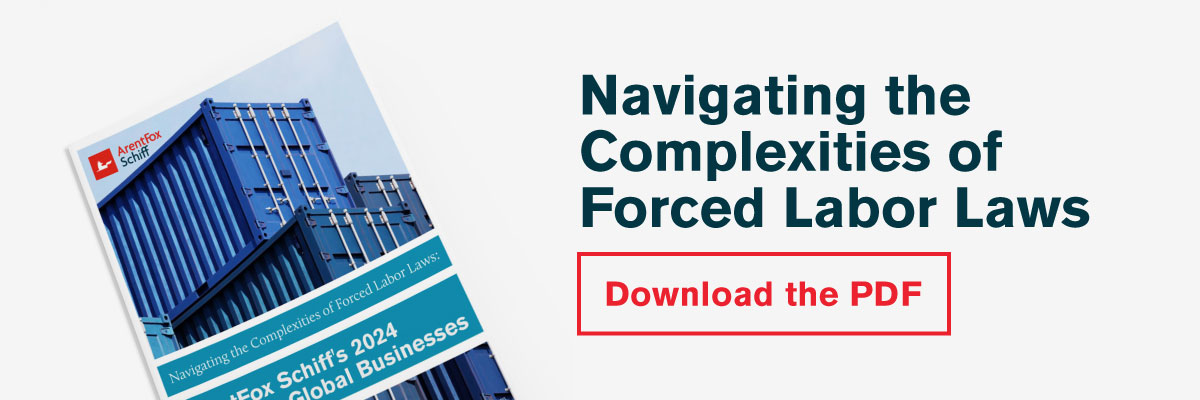Navigating the Complexities of Forced Labor Laws: ArentFox Schiff's 2024 Guide for Global Businesses
In the last few years, changes to the United States enforcement stance on the forced labor import ban authorized by 19 U.S.C. § 1307 and passage of the Uyghur Forced Labor Prevention Act (UFLPA) have fundamentally changed the way that companies operating in the United States conduct business operations worldwide.
For the first time, companies in all industries must know and take responsibility for their entire supply chains or face significant consequences. These obligations are complicated by the nature of many supply chains, which are broad and opaque, insufficient information and inconsistent enforcement from the government, and the lack of tools to help companies comply with the law. These new requirements can be challenging to navigate; however, with this report, we offer a substantive overview of the issues surrounding forced labor enforcement in the United States and globally to help companies plan for and mitigate potential risks.
Who Should Read This Report
Forced labor enforcement impacts a broad range of companies and personnel in all industries (e.g., fashion and retail, construction, automotive, electronics, solar, chemicals, etc.), including importers; investors and private equity companies investing in importing entities; buyers; manufacturers; and compliance, sourcing and procurement, legal, and accounting personnel.






